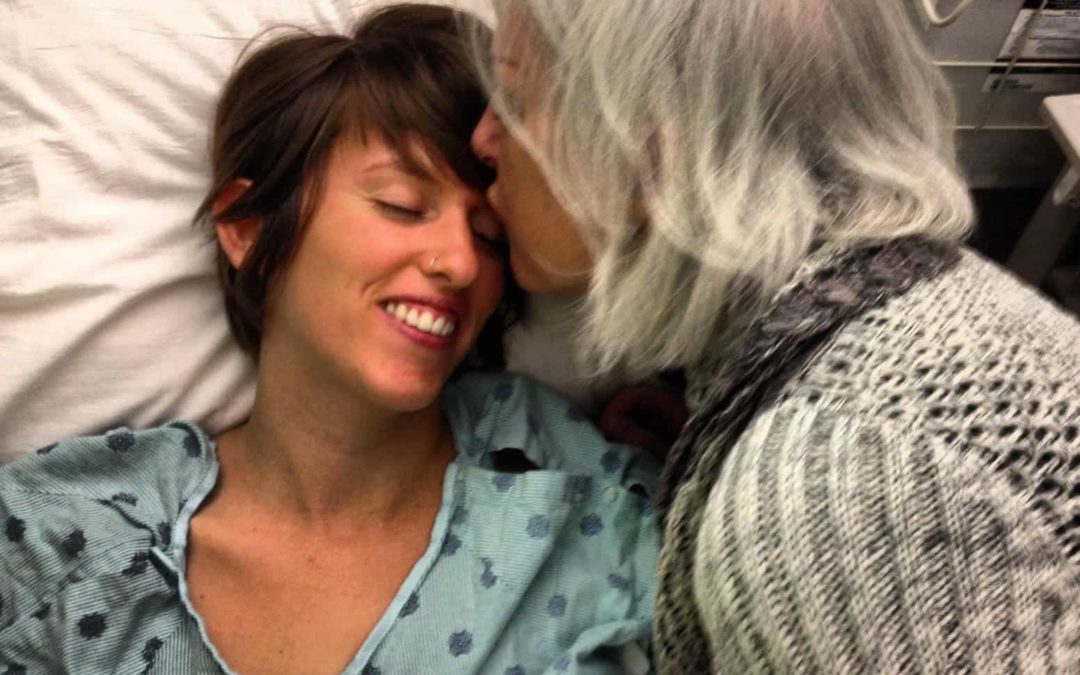Dr. Merritt’s Endo Story: Living and Thriving with Endometriosis
This blog post is a personal one for me. I don’t usually use my practice to share my own health journey, but this month, I feel compelled to. March is Endometriosis Awareness Month, and as a Doctor of Acupuncture and Integrative Medicine who both lives with and specializes in endometriosis and reproductive health, I’ve spent a lot of time reflecting on this disease.
Below is my story—thank you for listening.
It often surprises my patients to learn that in June 2023, after four prior endometriosis surgeries and an infertility diagnosis, I chose to have a complete hysterectomy and partial bowel resection. After more than 25 years of living with stage 4 deep infiltrating endometriosis and adenomyosis, this decision brought a profound sense of relief. It wasn’t easy, but after so many years on the endo rollercoaster, I was ready for a break.
The beginning of my journey was… chaotic. A combination of genetic predisposition on both sides of my family, a history of autoimmune issues, and excessive childhood antibiotics—paired with years of medical gaslighting and delayed diagnosis—set me up for a tough road ahead. I faced excruciating periods, constant GI issues and debilitating fatigue.
If you’re living with endo and feeling overwhelmed reading this, let me be clear: before deciding on a hysterectomy, I spent many years successfully managing my symptoms. There were long stretches where I experienced little to no pain and easy daily living. Healing took work—undoing decades of gut damage + inflammation and replenishing depleted nutrients was a slow and deliberate process. But with persistence, a well-executed excision surgery, and the integrative therapies I’ve come to love and trust, I put myself into what I consider endo remission for many years. It. Was. Incredible.
That said, stress has always been my biggest endo trigger. So when COVID shut down the world—and my clinic—in 2020, my health began to unravel. My stress levels skyrocketed, and with them, my symptoms. After years of relief, I was once again facing relentless pain. By the time the world reopened and life stabilized, I was exhausted.
When I told my (amazing) excision surgeon that I was considering a hysterectomy, she supported my decision, acknowledging that with my history of adenomyosis and years of struggle, it was time. Let’s be clear—hysterectomy is not a cure for endometriosis. But choosing to have one does not make you any less of a warrior. This disease is complex and unpredictable. Having bad days—or years—doesn’t mean you’ve failed at healing. It means you’re human.
Endometriosis has taken a lot from me, but it has also given me so much. While I would never wish this disease on anyone, nearly 15 years after my diagnosis, I can genuinely say I am grateful for all it has taught me. It has revealed my strength, my body’s resilience, and most importantly, my purpose: to serve those navigating the toughest challenges in reproductive health and infertility.
I’ve become an expert in endometriosis not just through my training, but because I had to fight my own way through it. I had to learn to advocate for myself, understand what works and what doesn’t, and now, I do the same for my patients.
My Calling
My story is just one of many. There is no one-size-fits-all approach to managing and treating endometriosis—every journey is unique. One of the silver linings of this disease has been my deep calling to serve others facing similar struggles. One in ten people assigned female at birth have endometriosis, yet it remains one of the most underfunded and underdiagnosed diseases out there. WE DESERVE BETTER.
When I graduated from the Acupuncture and Integrative Medicine College, I knew I had to create a reproductive health practice where people with endometriosis could feel seen, heard, and supported. Helping others through this often invisible disease has given me a gratitude I can’t fully describe. I don’t have all the answers, but I’ve learned a hell of a lot over the past 15 years about managing endometriosis—and I love sharing that knowledge. There is hope. You are not alone in this.
If you have endometriosis, or suspect you do: we see you, we hear you, and we are here for you. Your pain is real. You deserve to be heard. You deserve help, and we would love to be part of your journey.
Thank you for listening to my story. I would love to hear yours.
In better health and wellness,
Dr. Merritt Jones


